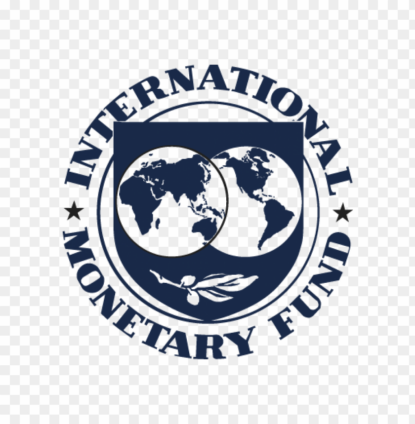
Audio By Carbonatix
Beyond 2024, Ghana’s Gross Domestic Product (GDP) growth is projected to gradually increase to its potential level of about 5.0%.
This is consistent with many forecasts by international research institutions.
According to the International Monetary Fund (IMF) Country Report on Ghana, the macroeconomic outlook remains positive.
Notwithstanding headwinds from the continued fiscal consolidation and the ongoing dry spell, the Fund said the strong outturn for 2024 quarter 2 real GDP growth points to greater-than-expected underlying growth.
Hence, it revised its growth projection for 2024 upward to 4.0% (3.1% at the 2nd Economic Credit Facility (ECF) review).
The Fund also projected that inflation would reach 18% by end-2024 (revised up from 15%), mainly reflecting price pressures from a weaker cedi and the dry spell.
“Continued tight monetary policy will bring inflation back to the Bank of Ghana’s target band (8±2 percent) by end-2025”, the Fund said.
Further progress on fiscal consolidation and the completion of the debt restructuring, it explained would ensure that Ghana’s public debt is firmly on a sustainable trajectory.
Also, the current account deficit is projected to remain in balance until 2026, while international reserves would reach 3 months of import coverage.
Downside Risks to Outlook Remains High
Nevertheless, the IMF said the downside risks to the outlook remain high.
On the external side, it pointed out that an intensification of regional conflicts, spillovers from the conflicts in Ukraine and the Middle East, or commodity price volatility would negatively impact Ghana through higher imported inflation and risk aversion.
“If protracted, weak cocoa harvest could affect exports and growth prospects. More generally, Ghana is subject to risks related to climate shocks. On the domestic side, policy slippages ahead of the end-2024 general elections or during the political transition could undermine macroeconomic stability, deteriorate domestic financing conditions and the debt dynamics, and complicate debt restructuring discussions with Ghana’s remaining external commercial creditors”.
It also mentioned that risks to the inflation outlook are tilted to the upside, as the disinflationary process took place at a slower-than-anticipated pace in half-year 2024 and exchange rate volatility has increased.
Latest Stories
-
Trump lashes out at Supreme Court justices over tariffs ruling
55 minutes -
Refrain from mass marketing or public promotional campaigns on virtual assets – BoG to VASPs
2 hours -
Government bans land transit of cooking oil; orders crackdown on customs complicity
2 hours -
NPA engages industry stakeholders on 24-hour economy pilot in petroleum sector
3 hours -
Ablakwa outlines key bilateral agreements with Burkina Faso to boost trade, security and border cooperation
3 hours -
Ghana, Burkina Faso deepen security ties after terrorists kill 8 Ghanaians in Titao
4 hours -
Luv FM launches 7th edition of Primary Schools Quiz; pupils urged to embrace Ghanaian culture
4 hours -
Nollywood star Michael Dappa stuns fans with big chop ahead of new film role
4 hours -
NPA slams gas ‘shortage’ rumours; assures over one month’s cover
5 hours -
BoG, SEC order the removal of all crypto billboards within 48 hours
5 hours -
Majority Leader fires back at Sefwi protesters
6 hours -
New Horizon Fun Games: Vice President calls for stronger national commitment to inclusion
6 hours -
Prof. Amoah warns Africa against becoming China’s ‘Dumping Ground’
7 hours -
President Mahama commissions B5 Plus Steel Ball Mill and Manufacturing Plant to ignite industrial revolution
7 hours -
Fighters demand amnesty for cannabis convicts following massive policy shift
8 hours

